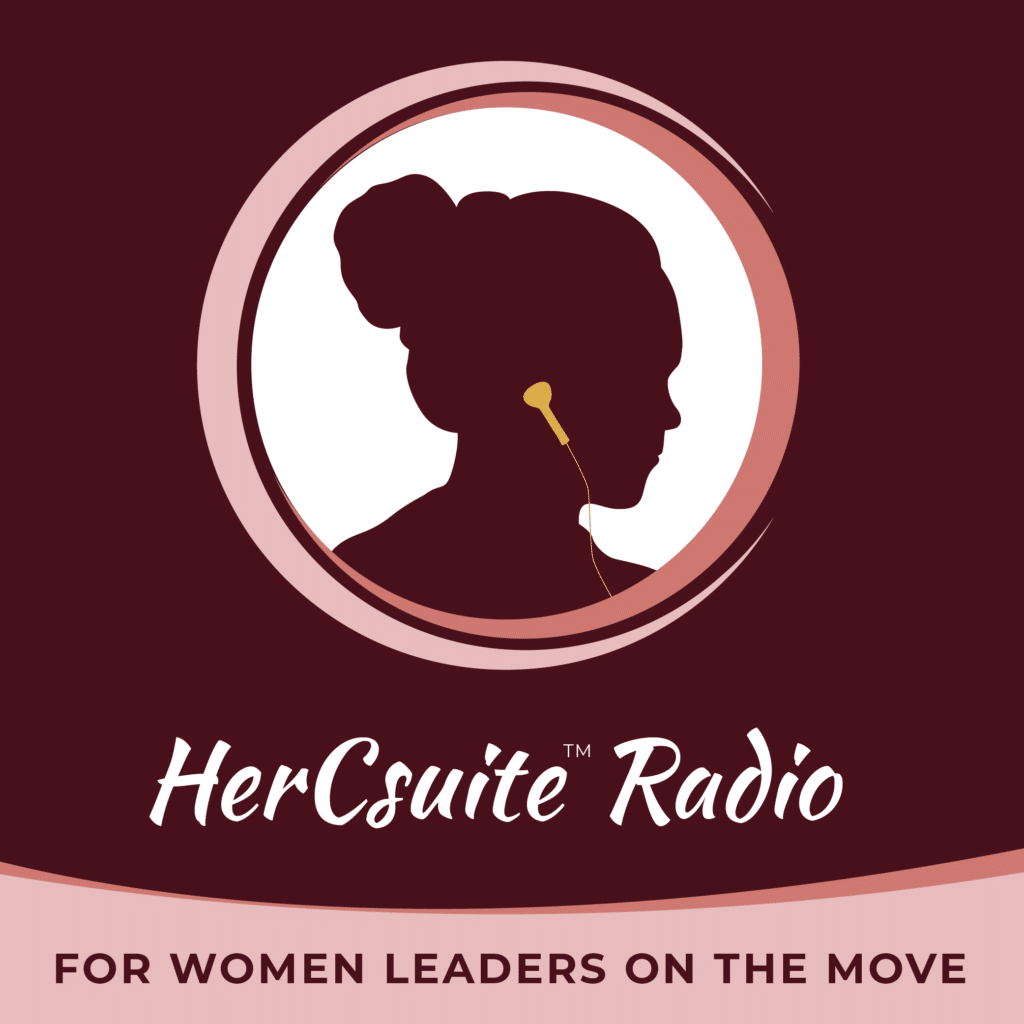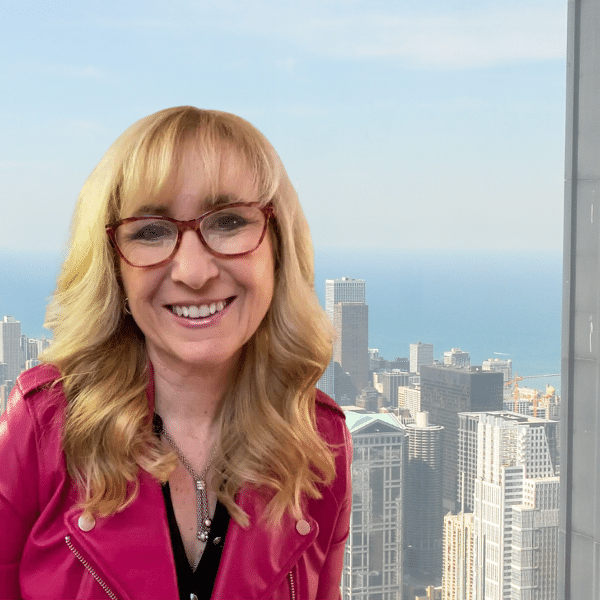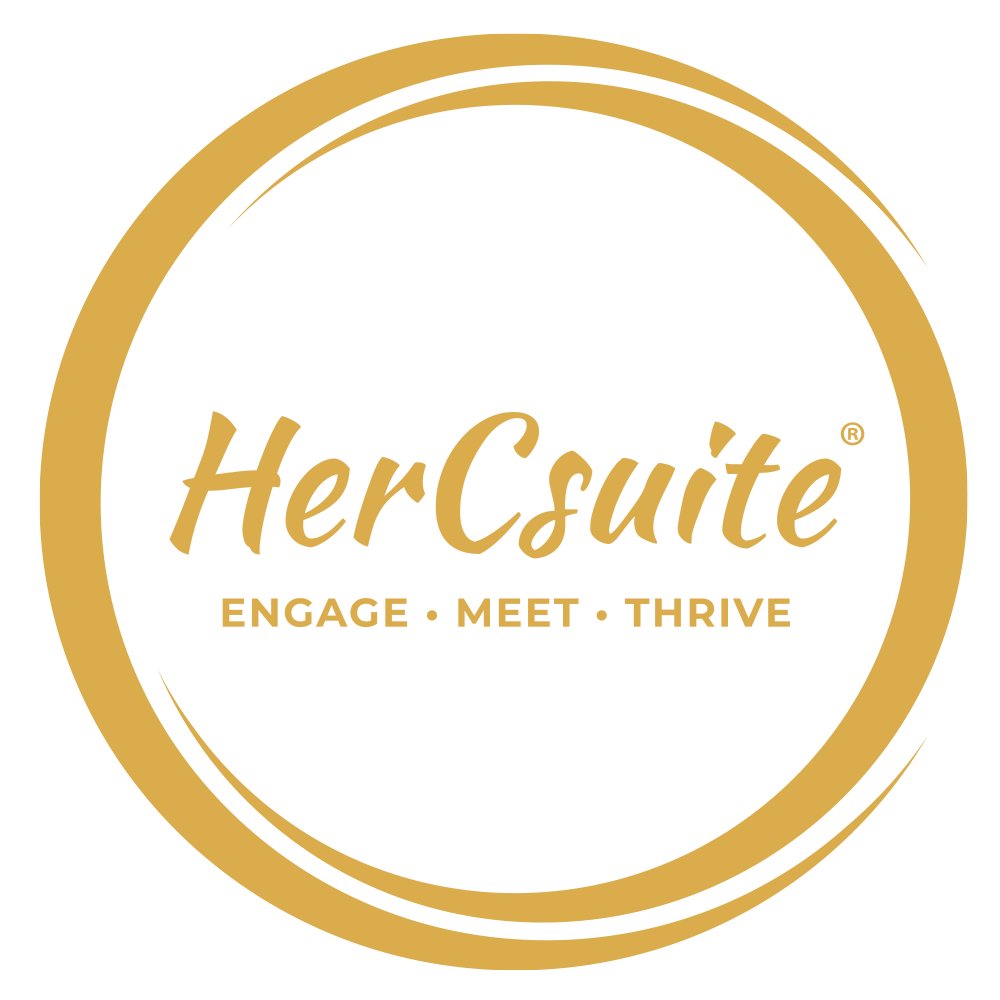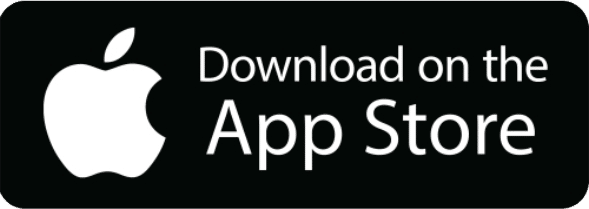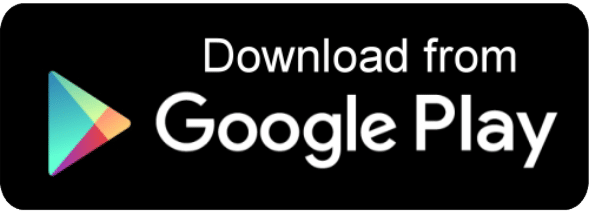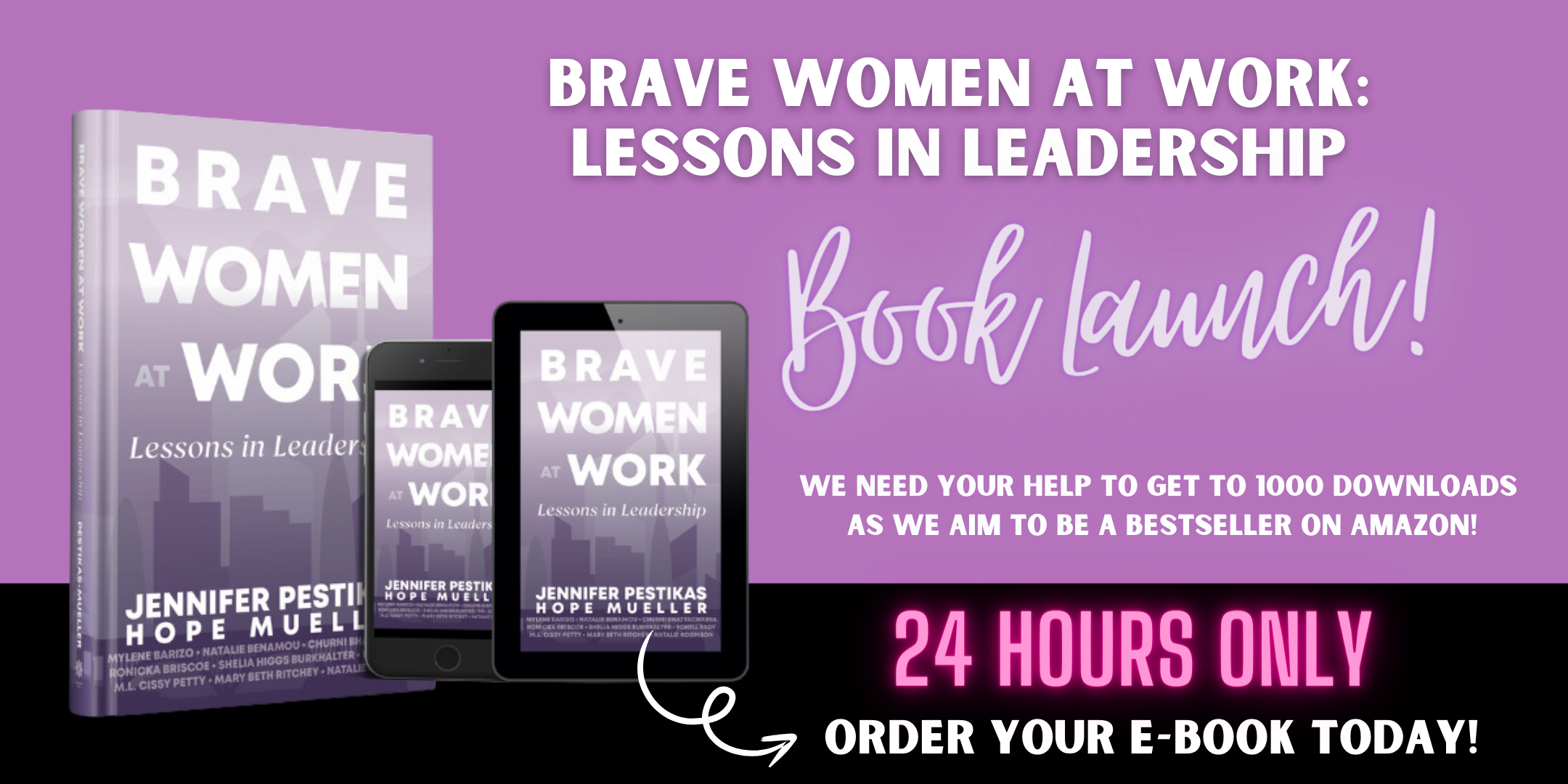5 Ways to Use Improv for the Future of Work with Karen Hough
As leaders, we have to be ready for any situation. It can be difficult to know the best way to respond to unexpected situations. Discover the best ways to respond and be ready for the unexpected using Improv with host Natalie Benamou and Karen Hough, Founder and CEO of ImprovEdge. In this episode, Karen explains how we can leverage Improv to help respond to disruptions happening at the speed of change and why adaptability is essential for leaders in the workplace.
Improv can be used in professional and personal settings to show resilience and empathy in any situation. Being an improviser has never been more important, take a listen as we discover all the ways to use these skills for the Future of Work.
5 Ways To Use Improv For the Future of Work
- Be ready to adapt to different meeting environments: Hybrid, Virtual and In-person.
- Apply flexibility to keep pace with change and demonstrate your resilience.
- It is better to slow down to go fast.
- Good meeting hygiene: set an agenda, assign topics to other people, and finish early.
- Ask open ended questions to stay on topic and in the moment.
Learn how leaders across the globe use these principles to be more effective at what they do every day with Improv.
——-
Quotes from Karen Hough:
“It is much more exhausting to be on camera than to be in-person, the brain has to work on over time.”
“We need to make clear decisions about who needs to be in a meeting”
“If we empower ourselves as an improviser, we are never alone”
“Be willing to be creative and ready to fail. It is how we experiment.”
“It is so important to our health and well-being that we try to see the silver lining even in difficult moments.”
“As we think about the future, it's never been more important to be an Improviser.”
———
Quote from Natalie:
“You have to listen attentively so that you can follow up with the next question.”
———
Resources:
- Karen Hough LinkedIn
- Karen Hough Twitter
- Karen Hough ImprovEdge website
- ImprovEdge Twitter
- ImprovEdge YouTube
- Natalie Benamou LinkedIn
- HerCsuite™ on LinkedIn
- HerCsuite™
Thank you for spending your time with us today. This podcast is sponsored by HerCsuite™ Mentoring Made Easy Programs that combine speakers with executive coaches in every cohort. Gain a competitive advantage by advancing more women at every level inside your own private network hub in HerCsuite™.
Find out more at HerCsuite™ and Schedule a call to find the best program and share with us what success looks like for you.
Thank you to Karen Hough for being a featured speaker for HerCsuite™ and guest on the show.
To our listeners, we appreciate you. Keep shining your light bright out in the world.
We would be honored if you hit the subscribe button and share the episode with a friend or colleague today.
Show Transcript:
Natalie:
Karen, I'm so excited to welcome you to HerCsuite™ Radio today. Thanks for being on the show!
Karen:
You are welcome. I am thrilled to be here as well, we finally have somebody who is as energetic as each other.
Natalie:
How fun is it that we're back together today? Wow, you've done so many things since that episode and since we met at the HBA conference, and I'm so honored that I've been able to stay in touch with you. For our listeners who may not know about you, you have an amazing arc of a career. Can you describe a little bit about that first before we get started and what brings us to this moment today?
Karen:
Oh, my goodness. Yes, absolutely. Let's see, I have had several careers, let's put it that way. My first big career after I graduated from Yale was as a professional actor and improviser. The cool thing about that is that I had work: I got to train and perform at the Second City in Chicago; I did movies and TV; and did Shakespeare, and I did lots and lots of late night improv. I did experimental theater, and I had a wonderful, fabulous paid actor career, which I'm very, very proud of.
Things were going really well, we moved to New York, my husband and I. Then there was one of those weird little wiggles that can happen in your life, and I got an offer to go into a tech company, a tech startup. So I was employee number 20, at a company that eventually went public. I will tell you in that moment, there was a moment of, I looked at the guy and said, “I don't think you know what you're doing. I'm an actor, I can't possibly help you.” He called again the next day, and I ended up running their entire sales team. That then translated to another company that was acquired. So I started having this really intense education in tech, I found that I absolutely loved it. I also found that I was probably a little more successful than people expected me to be. Now, granted, I was taking tech classes at night, all the time cramming like crazy, but I was improvising during the day. Those behaviors to be adaptable and flexible and creative and deal with the unexpected were serving me very well, and I just kept getting promoted.
So I thought, there is really something to this, and I want to look at it more than anecdotally. So the first place we did research was the Wharton Business School. ImprovEdge is the first company in the world to combine the art of improvisation with research and neuroscience, psychology and human behavior. What we were trying to prove is: do these behaviors and these capabilities that come from the improv stage make a huge difference in the workplace? The answer was resoundingly yes. Over time, we have proved that again, and again, and again, with our university research partners, like the University of Massachusetts and Otterbein. And also in our work that has spanned the entire globe; we've worked on four continents, we've worked with everything from very, very large pharmaceuticals, to small local engineering firms. People say that they gain adaptability, flexibility, and confidence, and that the most uncomfortable moments in life and at work are the ones that we lean into, and we help them solve, so it's been unbelievably fulfilling. I'm lucky to say I'm the author of three books, one is an Amazon bestseller; one is an award winner. I continue to write. I have an incredible ensemble in four cities of smart, amazing improvisers, people who also have a business background. And we just keep growing and trying.
Natalie:
So many things are coming to my mind. I'm thinking about that flexibility piece. As you think about how we're looking to the future, and even in the pandemic, you had to do a pivot from mostly in person, to then becoming masters at being online and engaging in this digital hybrid or just only on video. How does flexibility play into this? Why is it that this helps you so much in the adaptability piece?
Karen:
It's everything. I'll tell you the funny part is that we started using video 10 years ago. The interesting part was it was really hard for us to convince our clients to use it because they wanted us in person. Let's be honest, Natalie, the gold standard for human learning is together, humans with humans in a place together, learning together, and nobody wanted to give that up when they were forced to.
They discovered that we were able to bring that same energy, interactivity; a lot of great things literally within the first month to a video experience, and that was amazing. I think that the whole industry has grown exponentially from there. Then I'd say the next thing that we were able to do really, really well for our clients is hybrid. Hybrid is the hardest situation, where you've got some people on a screen, some people in a room. We've also solved that issue extremely well, and what people don't realize is, it's the hardest thing to solve. Remaining flexible, I was as terrified as anybody. I saw 54% of my business walk out the door in the space of a week in that terrifying month, and the first thing we said was, rather than running out and saying, “Give us business”, my first thought was, Is everybody okay? So we just connected with everybody that we knew and said, “Are you okay? Is there anything we can do for you at all?” In that need to be connected, eventually, the conversation started around, “Well, I guess we can't have our HR conference after all.” We were able to say, actually, there are a lot of options.

That was the beginning of our growth there. As we think about the future, it's never been more important to be an improviser. We're still having to adapt day to day, we still have to think on our feet, we have to prepare and have a great team and be willing to flow with it.
Natalie:
Speaking of teams, I had the amazing experience of working with your team, and I will say that I was in a hybrid situation. I was in a room when we did our program together, and having a producer that is engaging and controlling everything the way that your producer did was magical, and fantastic and clear. So I definitely want to make sure that all of our listeners know how important it is to master that and to have good team synergy on camera and to be ready to interact in whatever environment. What I hear from our leaders all the time is that the change is so rapid now. It used to be like some big thing would happen, and a month would go by; now it's like every five minutes. The news cycle and everything else, just as leaders, they're forced to make decisions and respond to their company, to their customers. How have you helped that as you look at the future of work? Looking at the future?
Karen:
It's not just even within our environment that we have some control over – it's the world. It's the scariness of things going on for our employees and our teams and our people. So it's interesting, quite a number of years ago, I started looking at some concepts around hybridity competence. We have now trademarked and been researching and writing about this now coming up on three years. It appealed to me so deeply because it was basically the definition of how to be an improviser in any environment. So you have to be able to basically in this world, now, be totally competent. If we are as we are right now, Natalie, just virtual, or if you're in a room with human beings, or if it's half-and-half, or if you're many, many time zones away, the demand to be competent in all those settings is a huge stress. The effects on these leaders is that they're struggling, because they may be really good at one, but not in others. Also, they're finding that because of the pace that you brought up, the pace is also really affecting our resilience, and that need to have human connection, and that need actually, strangely enough, in this faster world to slow down.
A great colleague of mine says, “slow down to go fast,” because when we become overwhelmed and stressed, it is really impossible. We've been working with a research firm to develop an assessment. We're looking at five different areas of human behavior and human need. This all grew out of the fact that we were working with a lot of clients who saw the issues in their environment and in their enterprise, and they kept throwing technology answers at it where they're like, “oh, yeah, here's another platform,” and “here's another channel to talk on.” They kept going, “Well, why isn’t performance getting better?” It's because that's a help. It's a tool, it's not going to solve the human need behind it. So, we look at resilience, effectiveness, communication, agility, and presence, and I'll tell you, resilience is still one of the areas that many teams across industries are struggling with.
Natalie:
Some of the other things that you mentioned, strategic agility and the ability to look out past where you are and be ready to make change happen. Even if you're trying to go slower, you still have to be able to adapt to the situation and lead. I hear it all the time. As I mentioned from women in HerCsuite™, we talk about how that piece is probably that and resilience, and burnout is so high. I'm wondering about the on-camera, because we're still hybrid, and there are many companies that are returning to work for a few days a week or not at all, some companies decided to forget it, and we're not coming back. So you have that mix of trying to go back and forth, and every which way. So people stopped putting their cameras on, I used to be one of them. Full disclosure, when COVID hit my company, we were always going to be on camera. I was like, “No, I'm not, just let me shoot the phone. Right?” Now I'm on camera all day. It’s a muscle you’ve got to build to be able to be on camera, and I can't tell but I'm leaning into you. But I'm standing all day when I'm on video, so that helps me. So if we think about that, with the fatigue, if you're in person what have you found in your research?
Karen:
Oh, well, this is actually something actors have known for a long time, it's much more exhausting to be on camera than to be in person. Nobody realized that; I remember my earliest pandemic conversations where I'd be talking to a female leader, she'd be like, “I'm not commuting anymore. I'm not even having to get up and get all dressed anymore. I am a mess. By the end of the day, I can't even think straight, I'm so tired.” So the brain has to work overtime to be on screen, when we're on screen it's trying to assess so many things, and it's struggling, because it's distracted, and it doesn't have the benefit of being able to see your feet and your hands. It's constantly trying to realize what's really going on there. So it exhausts you mentally and it also exhausts you emotionally. Then there's another aspect of this. There's some really great research around meetings.
So, it's not that we have too many meetings, which we do – we have too many meetings. It's that we have too many bad meetings, because being on this camera all the time is really not good for any of us. We've got to make really clear decisions about who should actually be there. Let's have an organized, engaged conversation only about things that have to be talked about. If it's information sharing, put it in an email. The other thing is to find other options, go back to your phone, we have an internal thing at ImprovEdge. If you're supposed to connect with somebody, we sort of say, “Hey, is it okay for a walk and talk?”, we both put in our Bluetooth, and we walk out of the meeting and talk. If we don't have to share slides or information, get outside, do something else, and don't sit and look at a screen the entire time. There are a lot of reasons for this. Creating boundaries and creating options for ourselves is key. At the same time, I would also say if we have fewer, more important meetings, then we can all be on camera, and we can connect and see each other because we're not so exhausted from sitting in so many.
Natalie:
It's so true. I work very closely with our creative director, Meghan Draper, who is amazing, and sometimes I just call her probably too much. She probably is like, “oh my gosh, she's calling me again”. But I like to mix it up old school. Just a phone call – I'm going to ask you a couple of questions. We do a lot in Slack, too, but because we do connect on Zoom, I like having a mixture, there are visuals and all of that. What would you say as you're looking forward and you're doing this research about the future and flexibility, what that looks like? How can we adapt better, be resilient, do all the things that you're doing and your research? Even in a meeting like we're talking about now, how can we be ready for that?
Karen:
Yeah, we've got great curriculum called Running Great Meetings. It's about engaging people other than yourself, because I think a lot of people, managers, leaders who have to run meetings feel like it's all on their shoulders, and it's actually much more about good meeting hygiene. Set a time to start, end five minutes early, set an agenda and then assign a bunch of it to other people or tell them who needs to be engaged. Cancel it if it's not the right time for it. So just a couple of check marks can make that easier. In addition, being willing as human beings to set boundaries. The surgeon general just announced this week that he believes loneliness is a national health crisis. So the interconnectedness of us as humans has dipped so low that especially our young people in their 20’s are so lonely, and they're afraid to share that because it sounds like people don't want to be around you. Part of it is that we keep thinking that these virtual interactions can take the place of being in person together. They actually cannot. They do help, they're a wonderful way to stay connected, they're an incredible way to meet people you'd never meet otherwise. We all still have to be in the same rooms together, which we learned really strongly during the pandemic, in whatever way that feels safe to you. To be in the same area with other humans is a social and a physical need of ours, it's a survival need for us to be around other humans, we are social beings. So in setting some boundaries around your technology, I think a big part is that when you are with the human beings that matter to you not having screens around is one very easy way to help with that resilience and, and to be present in the moment. That's a huge improvisational concept: to be here now.
I loved improv because I was never thinking about anything else than what I was doing right there because I had an audience watching me. If I wandered off in my head, I would miss something and mess up the show. That's really rare for us as humans, don't you think, Natalie?
Natalie:
You have to listen attentively so that you can follow up with the next question. If you're not paying attention, you don’t realize whether it's a show or a meeting, or whatever the conversation is, and then it takes you a minute to regroup, and then level set. What are strategies that you can suggest to someone as an improviser? So let's say, you are fatigued, and your mind did just wander off. What is a good follow-up question to bring yourself back without being like, “Oh, I can't believe I can't remember anything that I just said.”
Karen:
Yeah, sometimes that good old open-ended question, or reflection can really be helpful. So to say, tell me some more about that project that you're concerned with”, will help give you a chance to breathe, which you need to, and give that person a chance to maybe say some more. Or, there are a couple of ways; you can also be honest and say, “I am so sorry, I just slipped for a minute. I was thinking of something else, could you please repeat yourself, and I won't do it again, I've just shut down my phone, so I can be with you.” Another one might be to just say, “the first thing I heard you say was the project may be coming in early, can you clarify what else could be around that?” So letting the other person take some of that, and then getting yourself back on track.
I think also starting to look out on our calendars and on our lives and saying where the boundaries are, because if you can be fully entirely engaged in a 30-minute meeting, instead of multitasking during an hour-long meeting, you will get so much more done. If you have a section of time on your calendar that has no meetings that you just deal with your email or whatever, without your phone binging and without other things coming up on your screen, you will just plow through it and get it all done. Focus is incredibly important to our ability to bounce back and feel healthy.
Natalie:
I just learned this thing called the stack method. Have you heard of this? Here's my power tip, for emails because if I told you how many emails you’d probably fall off your chair. I get a lot of emails, it’s a huge issue. So it's about focus time, like you're talking about and stacking and then having a whole system, I think I saw it on LinkedIn learning. I'll have to find it and put it in the show notes, but the stack method is the idea that you're focused in certain increments, like you're talking about. You do your email, and you're not like “start, stop, start, stop”. I think you probably know this from the research, at least this is what the man said, it takes 10 minutes for your brain to settle into getting into the flow. If you're always interrupted with another email, and then you look at your screen, then you can't ever get in flow.
Karen:
There was a study before the pandemic that showed that multitasking can degrade human IQ almost more than using drugs. Yeah, it's that bad. I remember, especially when I was writing my books, I pretty soon learned that the minimum amount of time I needed to truly get something done on my book, whichever one I was writing at the time, was three hours. I often left the office, went to the library, and I let everybody know “my phone will be off. If you need me, here's the number at the library, they'll come and find me, I'm always at the same desk in the back.” That was how I was able to accomplish that task. So figuring out what you need, and respecting the time it takes to get in and stay there, is something some of us don't respect. We're always willing to be bothered.
Natalie:
Willing to be bothered is so true, and we also all process information differently. Some people at different times of day or have different ways of receiving the information. Some people like seeing a video, some people like hearing voices, I'm sure you've found that. As you think about going into the next phase of wherever we are in the world today, what can you advise us to mentally prepare, as we think about being in that flexible state?
Karen:
Sure. I have to go back to the thing that has driven and changed my life forever. Think of yourself as an improviser. If we empower ourselves to be improvisers, that means number one, that we're never alone.



I did a little stand up comedy, Natalie. The thing is that I was out there alone. So when something bombs, you're by yourself with an unhappy audience. I loved improv, because I always had my ensemble, my troupe, around me, to help me if I was not doing so great, or if I was doing great, they actually made it better. We also knew each other, we could lean on each other. So thinking of yourself as part of a community that you can trust, I think also improvisers think of themselves as highly positive. It is so important to our health and well-being that we try to see silver linings even in difficult moments. Another way that improvisers work is we have this oops to Eureka mindset. The unexpected is really very traumatic – it's very hard. I'm not saying that we don't need to mourn or deal with it or step back or take time. There's also the moment where you have that inclination to say, “what will I learn from this? What good thing could come from this moment? How can I translate this into the next step in my life?” It does take practice, it does take support, and that's something that I feel we can all get a little bit better at. Then the things we've talked about, you have to be focused on stage, being willing to be creative, being willing to mess up. That's a big one, right? We mess up all the time, we're building a show without a script. I mess up all the time at work, and I have to ask my colleagues to help me remember something all right. I need them around to help me make sure that things get done right. That's how we experiment, that's how we figure stuff out.



Just today, we were experimenting with new exercises, and the first run was terrible. It's supposed to be. We know that as actors, the first couple rehearsals are terrible, until you figure it out. Then a second run and a third run, it really started to click and look fantastic. It was something that we knew we could research further and use with participants in the future when we're developing new content.
Natalie:
I loved all of that. I know probably what's coming into people's minds. This is my last question for you, which is, if people want to know more about you and all the amazing things you're doing, where should they go to find you?
Karen:
Come to meet the awesome people at ImprovEdge. We would love to see you. It's www.improvedge.com. My LinkedIn profile is Karen Hough Improv and that's spelled Hough – Hough like tough. You can also find ImprovEdge on LinkedIn, as well as YouTube is our other very, very favorite place and Twitter. So find us on social, find us at our website. We would love to connect with you. We have everything from live in person work, to live virtual, to our recorded on demand content in the conservatory.
Natalie:
Karen, it's so hard to end conversations like this because I could learn from you all day and I'm so grateful that we got a chance to come back together and hear from you and learn. My mind is going in many directions. I'm like, “I'm going to have to try that and I'm going to have to replay this.” I get the benefit of replay but thank you so much, Karen, for being here today. It was so fantastic to talk.
Karen:
Oh, thank you, thank you. You're amazing. Natalie, you do so much for women in the workplace and I'm thrilled to be here. Have a great day.
Natalie:
You too. Thank you!
Natalie Benamou
Founder, CEO
HerPower2, Inc, | CGO HerCsuite™ | Podcast Host HerCsuite™
Natalie founded Herpower2, inc. to create products under HerCsuite™ to empower women to make a lasting impact today and into the future. She takes a ‘serve first’ approach to life and has applied this principle throughout her career, serving in leadership positions in business as well as non-profit organizations.
Share this story:
HerCsuite® is an official product of HerPower2 Inc. | all rights reserved – Privacy Policy – Terms & Conditions

